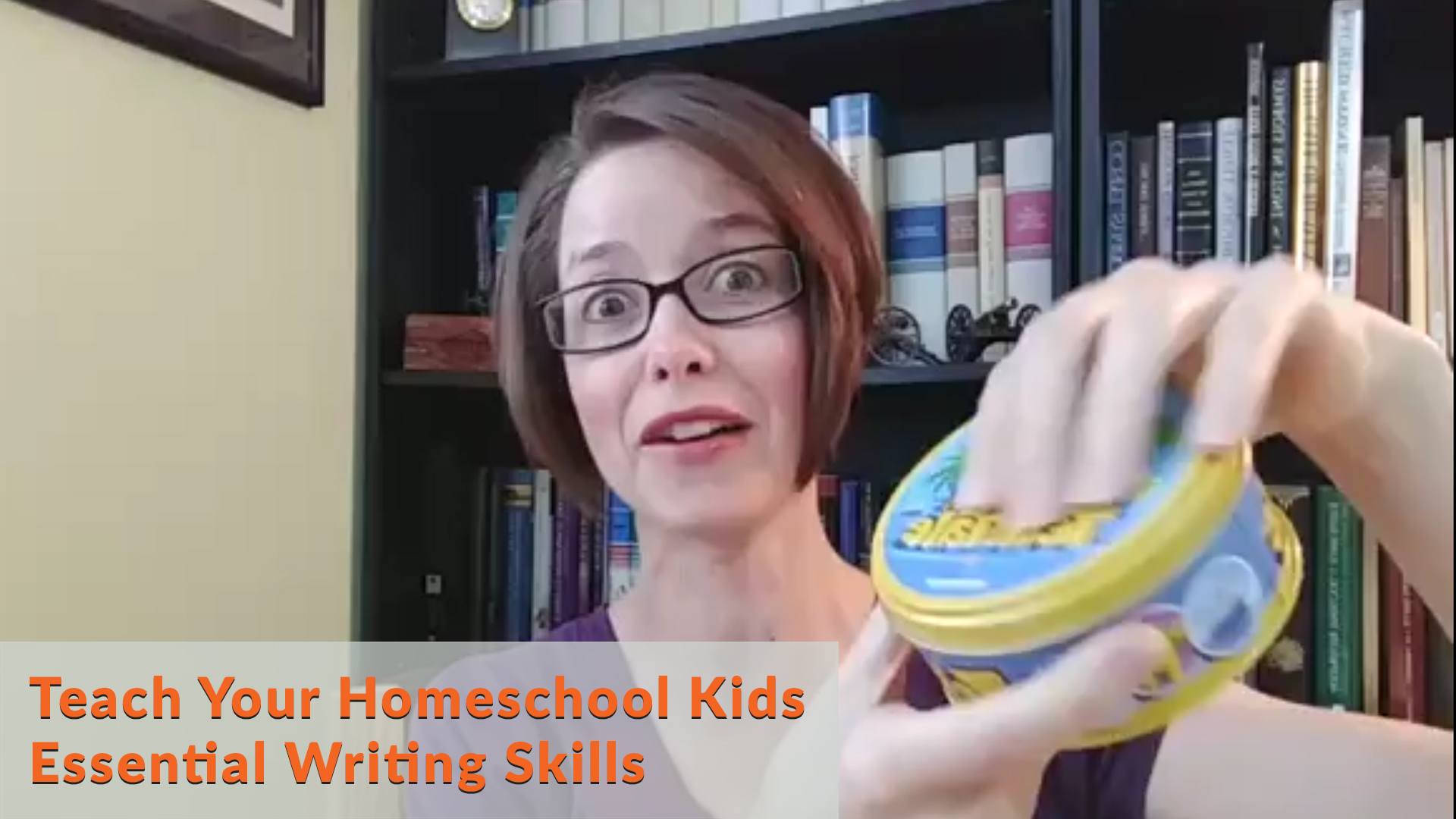
3 Essential Writing Skills + Teach 1 with This Tell Tale Game {Review}
Ever feel frustrated because your kid doesn’t want to write?
Or do you wish you could simplify your language arts curriculum, save yourself some time, AND still produce great writers?
It’s totally possible to inspire a love of writing AND do it in less time and effort.
Because writing breaks down into THREE essential elements. And you can practice each element individually and to different degrees depending on what your child needs help with and what they are naturally good at.
What are these three essential elements that must be mastered in order to be a great writer?
Putting words on paper (or on a computer screen)
Spelling
Getting content out of the brain in a coherent manner
Often, as moms, we try to lump all three of these skills together.
“Write down your ideas.”
“Let’s do a book report.”
But if your kid’s development in these three skills isn’t the same, they will struggle and get frustrated.
(For example, if they are FABULOUS at TELLING you a story, but they struggle to write the story down on paper!)
Being aware of each of these essential skills, and then tackling them individually, can sometimes be an excellent way to still develop great writers without all of the resistance.
Let’s break each of these skills down.
Putting Words on Paper
This is traditionally called “handwriting” and “typing.” The goal is for your kid to be able to legibly produce letters in some way.
For some kids, this comes so naturally. “Look mom! I just wrote the alphabet!”
They go from letters to printing sentences to cursive … and often they practice on their own because they love it. (It’s true … I had one, so I know it’s possible!)
However, there are other kids who putting pen to paper is HARD! Whether they struggle with some form of dysgraphia or they genuinely are just not interested, they have no interest in “practicing” how to write.
For these kids, breaking down the process of handwriting can be very very helpful. And practicing this skill IN ISOLATION makes it easier for them to learn what they need to learn.
My favorite resource for learning handwriting is Handwriting without Tears. We’ve been using this program with great success with my youngest this year!
Typing is also a valuable skill that you can teach young. We’ve used two different programs over the years.
Typing Instructor is a game that you install on your computer.
If your kid is a little older and you like FREE (who doesn’t?) and don’t mind a few ads, we’ve had great success with the online instruction of Typing Club this year.
Spelling
If your kid can’t spell, they can’t communicate in writing very well.
I’ve learned over the years, it can be valuable to split spelling from content creation and handwriting. If your kid is struggling, isolating spelling allows them to focus on what they need help with without feeling the pressure to also produce something amazing.
My two favorite spelling curricula are:
Sequential Spelling (for my holistic, right-brained learners)
All about Spelling (for my logical, left-brained learners)
Content Creation
The last essential part of becoming a great writer is sharing great content.
Great content can be anything from an interesting story to a factual report to a summary of what your kid learned during the day.
Later in your kid’s schooling, writing will be how they organize and share their thoughts about what they are reading and learning. It’s one of the main ways others will assess how much they’ve understood and synthesized from a class.
I have found one of the ideal ways to prepare my kids to share great content is to encourage them to share their thoughts in an organized way as much as possible.
When kids are younger, one of the best ways to do this is through storytelling. Storytelling requires that a child structure their ideas (beginning, middle, and end) — AND emotionally connect with their ideas.
PLUS storytelling is FUN! So it’s much easier to get kids to practice when they are engaging in a storytelling game.
While there are many resources out there to help with storytelling, two of my favorites (because they are simple and easy) are:
Rory Story Cubes (See my previous review here.)
Tell Tale (see my video review below)
Handwriting, Spelling, Content Sharing — three essential skills.
As your kid works on writing, keeping each of these skills in mind will help you identify where the gaps or struggles are. You can focus on those … while still moving your kid’s ability to write forward.
If you want to check it out Tell Tale for your homeschool, CLICK here
About the Author ToriAnn Perkey
I'm ToriAnn Perkey. I've been homeschooling since 2004, when my oldest daughter was 3 1/2. I'm a mother, mentor, teacher, presenter, and musician. One of my favorite pastimes is learning about ... anything! Read more here.
